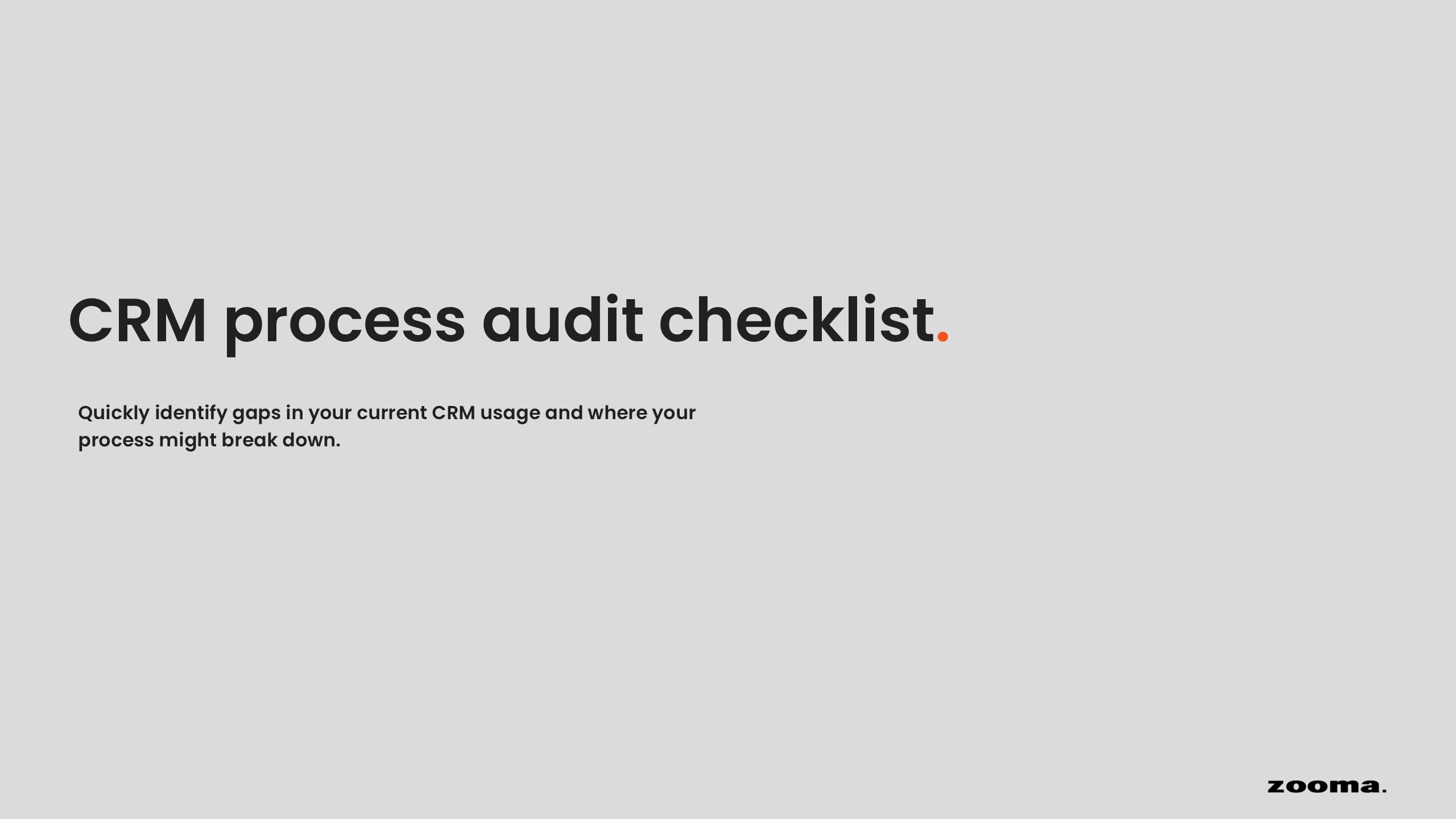In a B2B company, your CRM system or tool should be more than a digital Rolodex. When used correctly, it's a strategic asset that fuels sales, marketing, and customer success.
And yet, many organisations find themselves frustrated with low adoption, patchy data, and underwhelming results.
So what’s going wrong? It’s usually not the CRM tool—it’s the process (or lack of one) that surrounds it.
The real barriers to CRM success
If your CRM feels like more of a burden than a benefit, chances are you’re facing one or more of the following challenges:
Fragmented data collection
Without a clear and consistent approach to capturing customer data, your CRM quickly becomes a patchwork of incomplete, inconsistent, or outdated information. This weakens trust in the system and undermines your ability to make confident, data-driven decisions.
Misaligned workflows
Adoption takes a nosedive when CRM workflows don’t reflect how your sales and marketing teams work. If entering data or finding information becomes a chore, users will avoid it—or worse, create workarounds.
Lack of integration
A standalone CRM that doesn’t talk to your other systems—marketing automation, customer service platforms, reporting dashboards—creates silos. The result? A fragmented customer view and inefficient internal handovers.

How to unlock the full value of your CRM
To move beyond basic usage and unlock your CRM's strategic potential, focus on fixing the surrounding processes rather than just tweaking the tool.
The potential is already there. It’s just waiting for the proper process to bring it to life.
Define a data strategy
A deliberate and documented data strategy is key. Define what data should be collected, by whom, at what stage, and for what purpose. When everyone follows the same playbook, the CRM becomes a reliable source of truth.
Choose a CRM that aligns with your desired way of working
Rather than customising a CRM to fit existing processes, consider selecting a CRM system that inherently supports your organisation's ideal workflows. Adopting a CRM with best practices and streamlined processes encourages your team to align with efficient and proven methods. This approach minimises the need for extensive customisation and ensures consistency across departments. As highlighted by Zendesk, assessing your business's unique needs and evaluating CRM options accordingly is crucial to setting up your sales team for success and enhancing customer experience.
Implementing a CRM that promotes standardised processes can improve data quality, reporting, and collaboration. The system's structure also facilitates onboarding new team members, guiding them through established procedures. Choosing a CRM that aligns with your desired way of working supports scalability and long-term growth.
By selecting a CRM system that embodies your organisation's preferred workflows, you set the stage for increased efficiency, user adoption, and sustained success.
Integrate the CRM with your tech stack
A modern B2B success depends on connected systems. Your CRM should be integrated with email, calendars, LinkedIn Sales Navigator, marketing automation, support software, and business intelligence tools. This enables smoother collaboration and a 360° view of your customers.
Encourage adoption through culture and incentives
Process improvements are essential, but the right mindset and motivation must also support them.
Recognise and reward good usage
Acknowledge the teams and individuals who consistently use the CRM well, especially when their efforts contribute to better results. Public recognition or small incentives can go a long way in shaping behaviours.
Link CRM use to performance metrics
If you’re serious about CRM engagement, make it part of how performance is evaluated. Whether it’s pipeline hygiene, contact activity, or data completeness, when usage affects KPIs, people take notice.
Promote ongoing learning
CRMs evolve—and so should your teams. Run regular training sessions, share tips and updates, and create champions who support their peers. A learning culture ensures you keep extracting value from the system as it grows.
A vital engine
Your CRM isn’t failing you—your processes might be. Addressing the underlying operational and cultural issues can transform your CRM from a clunky database into a vital engine for customer engagement and growth.
The potential is already there. It’s just waiting for the proper process to bring it to life.
Download Zooma's CRM process audit checklist to get an overview of your team's scores. Quickly identify gaps in your current CRM usage and where your process might break down.





